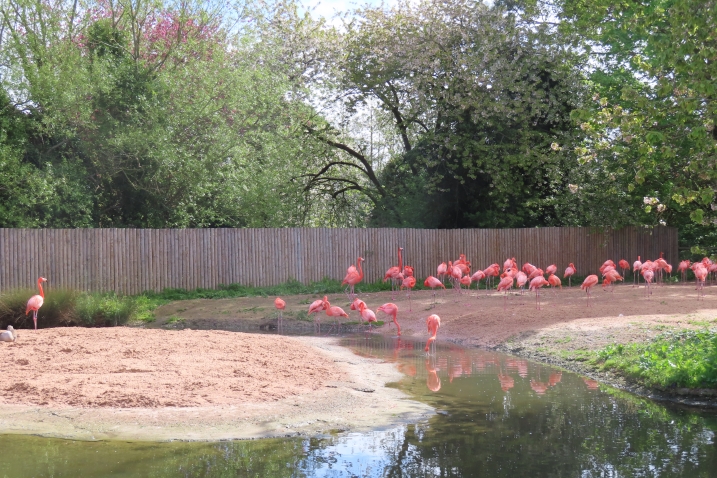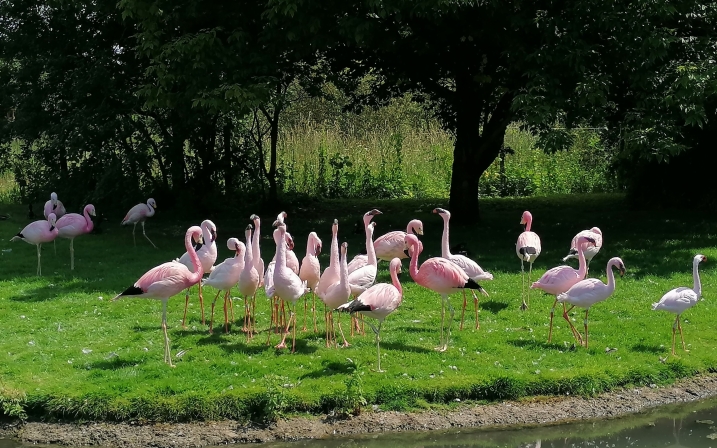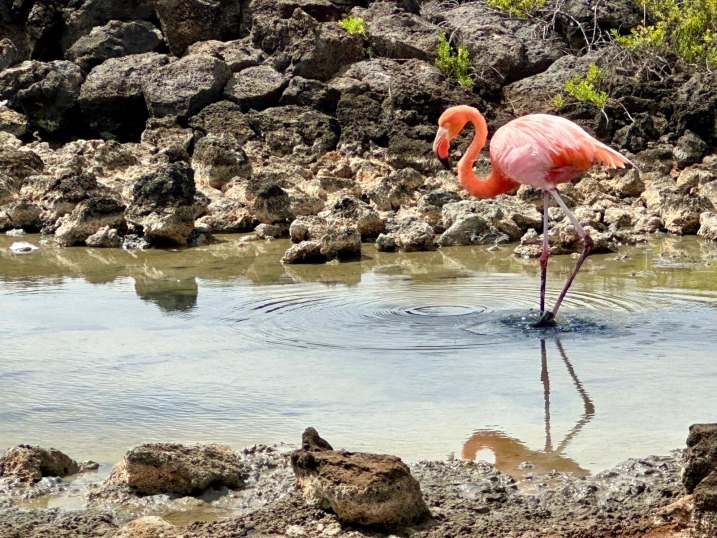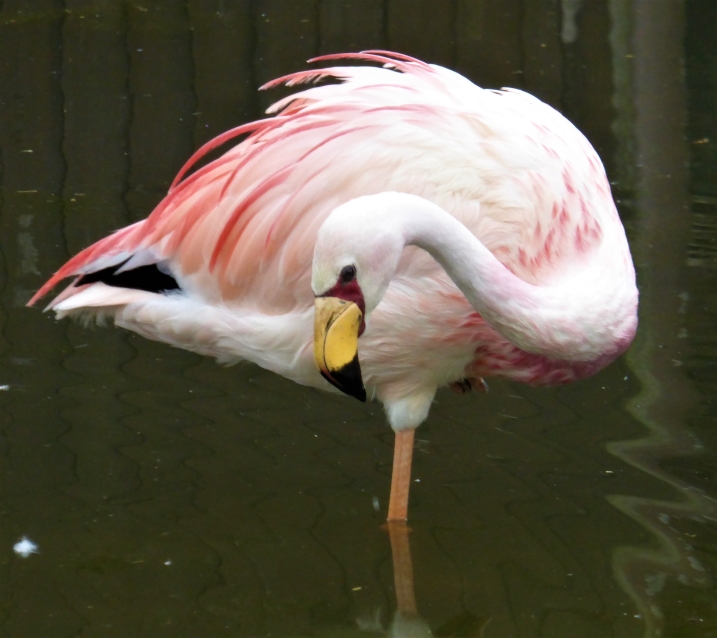More flamingo watchers for 2015
I am joined this spring and summer by two new MSc Animal Behaviour students from the University of Exeter who are investigating the Caribbean, Chilean and greater flamingo flocks for their research projects, and thus contributing to the data collection for my PhD. Both students are using similar methods to continue the identification of important relationships between the birds in the groups, but they are also looking at slightly different questions for each flock too. Gareth and Charlotte join the growing number of students that have spent several months at WWT Slimbridge to document the day-to-day goings on of the flamingos.
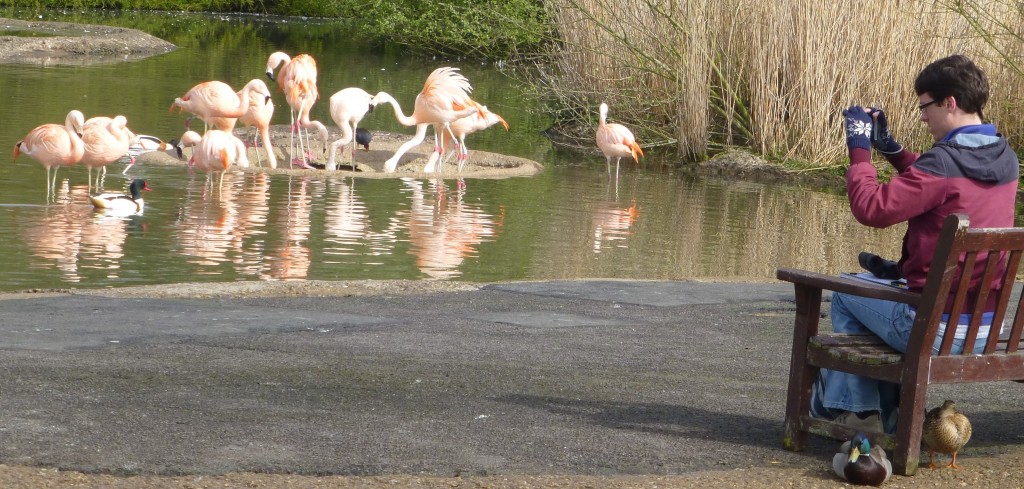
Gareth, who is observing the Caribbean and Chilean flamingos, is looking at patterns of vigilance across the whole flock, as well as in specific birds. What he is observing is how long the birds spend surveying their environment, looking around to see what is going on around them. By measuring this vigilance behaviour we can get a good idea of how happy the birds are in their enclosures at different times of the year. So for example, as the birds come into the nesting season, we would expect levels of vigilance to change as they spend more time checking to see if their nesting sites are safe and secure.
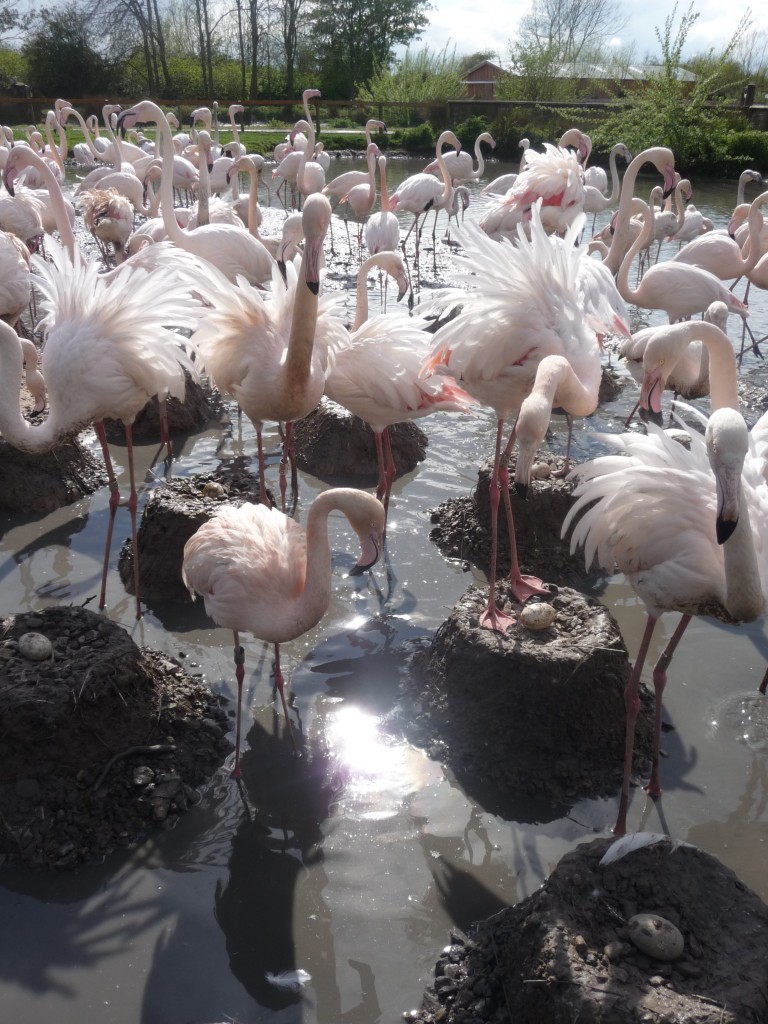
As all of the flamingos have differing personalities, the time spent being vigilant will differ. Those more relaxed birds have a very different attitude to life compared to those that have a more "sensitive" disposition shall we say. Gareth is also looking at aggressive behaviours, and who is more pushy to other birds in the group. This continues with what my student, Finn, was doing last year, and will be able to tell us how consistent flamingo personality is over time.
Why do we care about angry flamingos? Well, particularly dominant or overly aggressive birds can disrupt the nesting habits of others around them, so it's good to keep an eye on who is doing what to whom so that more nest sites can be provided to ease any tensions.
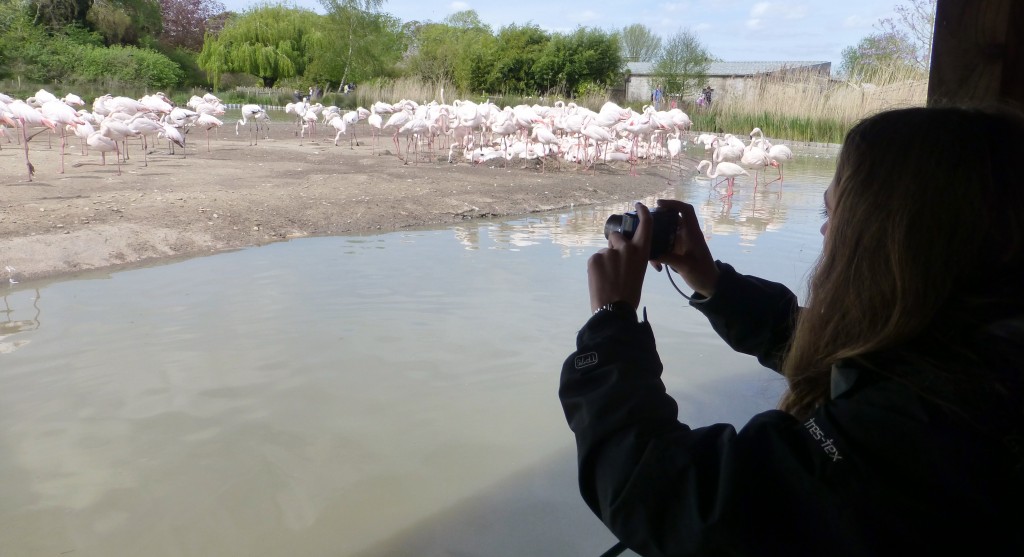
Like Gareth, Charlotte also assessing relationships between birds but she is focussing on the greater flamingo flock. There is much nesting activity currently in this flock, with eggs already safely tucked away in the incubators at the Duckery, so there is much to see again this year in the flamingo soap opera.
Charlotte is also measuring activity at different times of the day. The enclosure in Flamingo Lagoon is fitted with night-vision cameras that enable the birds to be monitored after dark. So Charlotte will be recording what the birds do when the lights go down and all the visitors go home. Do they suddenly break open the flamingo wine cellar and have a knees up? Probably... Watch this space for a future update.
